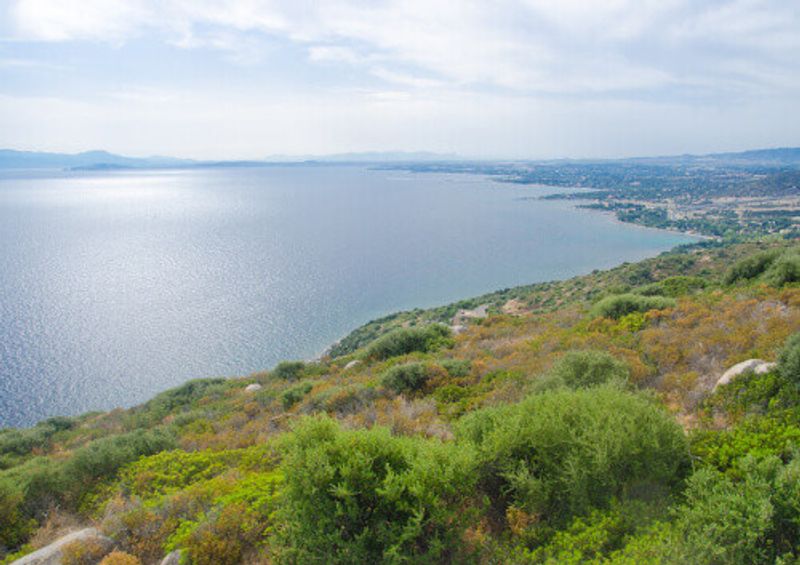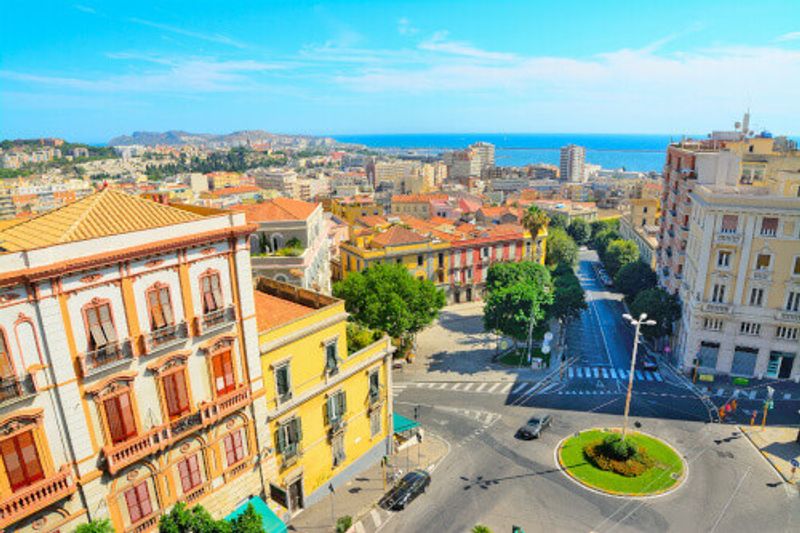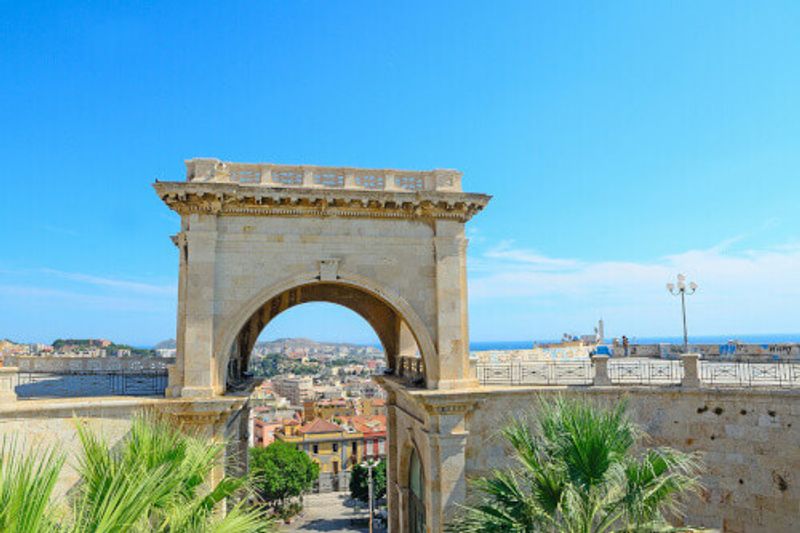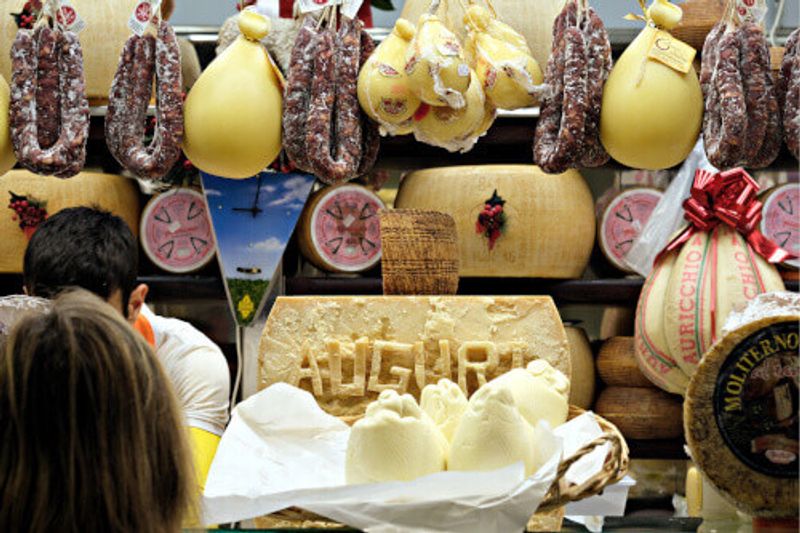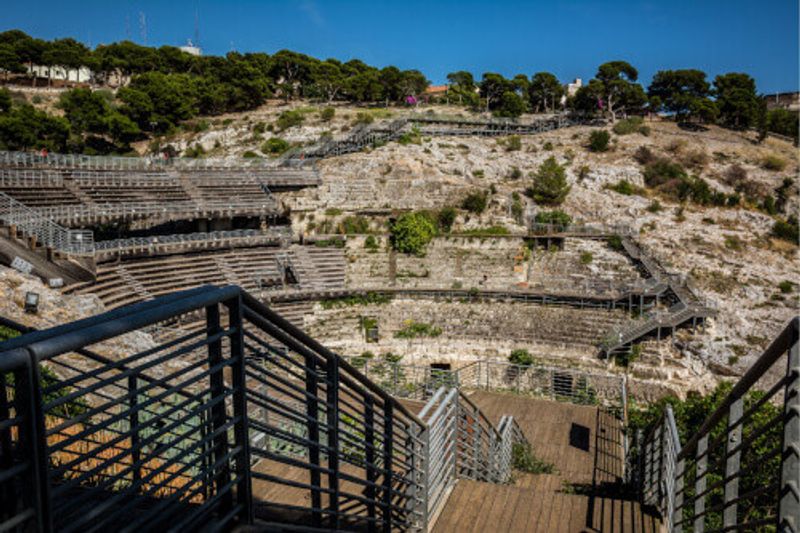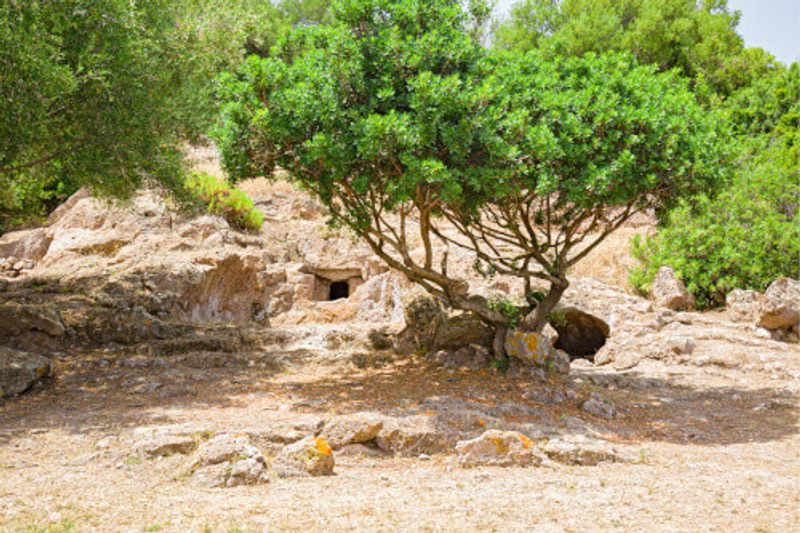Rising out of the ocean in a glorious stack of colour and history, the capital of Sardinia is a photographer’s delight
Located in Sardinia’s less ostentatious south, Cagliari is all about raw beauty. The city’s founding legend describes a utopia blessed with lush natural resources which God gifted to the angels. After wrestling the land back from the covetous Lucifer, the angels are said to stand guard to this day. Cagliari’s eponymous Golfo degli Angeli or Golf of Angels pays homage to these divine protectors.
It’s no surprise then that Cagliari has been the focal point of many Mediterranean civilisations. Its position in the Tyrrhenian sea made it an important trading hub and point of cultural exchange between Italy and North Africa. This North African influence still lingers today in the local language, Sardu. Over time, the city has imbibed cultural elements of its other inhabitants; the Phoenicians, the Pisans and the Spanish Habsburgs.
On approach to the city, the Pisan and Spanish influence are obvious in the fortifications which wrap protectively around the city. The city walls are interwoven between Cagliari’s ten quarters which emerge from separate limestone hills. These quarters are best explored on foot, and a walk around the undulating old city offers photographers interesting perspectives from different elevations.
The city’s highest point, the historic Castello quarter, features ancient fortifications and grand palazzi, the homes of the nobility. Start your exploration here in Piazza Costituzione, unfolding beneath the Bastione Saint Remy. With a panoramic view of the city and its port below this is a wonderful place to get your bearings and enjoy the surrounding neoclassical architecture.
Foodies should move directly to the Mercato San Benedetto (San Benedetto market), just north of the Bastione Saint Remy. Here you can absorb the story of Sardinia through its cuisine, particularly the local seafood and wine. Be sure to pick up a bottle of Cannonau, a grenache variety local to the region and renowned for its antioxidants which promote heart health. Vendors encourage sampling so arrive with an empty stomach!
A 20-minute walk northwards will bring you to Anfiteatro, a Roman amphitheatre dating back to the first century AD. The theatre’s ten thousand-seat expanse is carved into the valley, blending seamlessly into the natural environment. In its prime, the amphitheatre served an ingenious dual purpose; it collected rainwater for the city’s water supply and was also the backdrop for the bloody circenses or Roman Games. Anfiteatro has recently opened to the public after the completion of restoration works. Be sure to visit the cells beneath the amphitheatre where animals and gladiators were kept in anticipation of the Games.
For history lovers and those with a little more time, an hour’s drive southwest to Villaperuccio will bring you to the Necropolis of Montessu. It is the best example of Domus de Janas (pre Nuragic tombs) in Cagliari, dating back to third millennium BC. These tombs were carved into the rock and prepared with grave goods to ease the occupant’s transition into the next life. Inside the caves you will see reliefs which depict the Neolithic wheel of life; fertility, death and rebirth.
